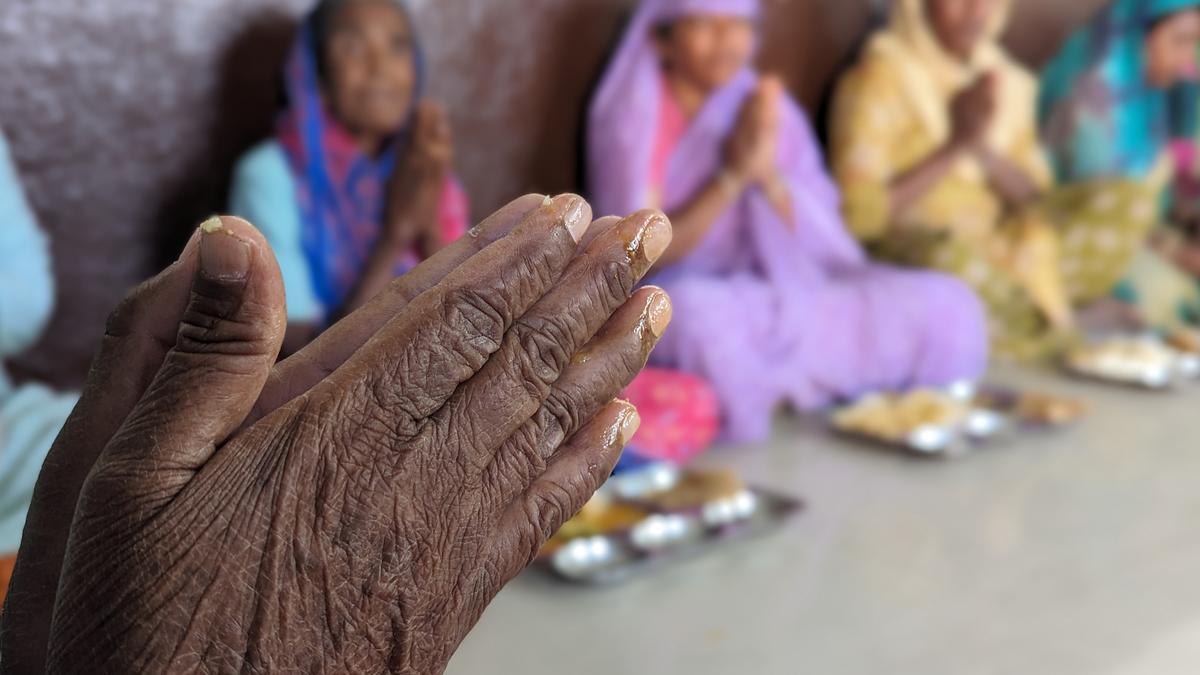
Maharashtra govt. pays ₹86 lakh to 39 rescued labourers
The Hindu
Maharashtra government compensates 39 bonded labour survivors with ₹86 lakh, including 14 children, under Central Sector Scheme.
In a first, the Maharashtra government has released a compensation of ₹86 lakh to 39 people rescued from bonded labour in Ahilya Nagar (previously Ahmednagar) in 2023. Among those rescued are 14 children.
Taking suo motu cognisance of The Hindu report titled, ‘Survivors of bonded labour in Maharashtra: unshackled, yet the scars run deep’ and a couple of other reports on the survivors of bonded labour, the Maharashtra State Human Rights Commission (MSHRC) directed the State government to release compensation for the survivors under the Central Sector Scheme for Rehabilitation of Bonded Labourer (CSSRBL).
All the survivors had been initially paid ₹30,000 each from the State’s bonded labour victim compensation fund.
Assistant Labour Commissioner Nashik C.N. Birar said this was the first time in the State that a total of ₹86 lakh of final compensation was being released in a single year for 39 survivors of bonded labour from two districts. From Nashik, 25 survivors received a final compensation of ₹44 lakh (19 women and child survivors received ₹2 lakh each and six male survivors got ₹1 lakh each) and 14 survivors (₹3 lakh each) from Ahilya Nagar got a final compensation of ₹42 lakh.
“The ones from Nashik who were rescued from Ahilya Nagar, belong to the Katkari tribe. There were children aged between 13 and 15 among the total 31 survivors. Of them, 25 have received final compensation and six of them are expected to receive ₹11 lakh as final compensation by January 2025. The rescued children have been admitted to schools in their respective villages. With the help of NGOs, they are given counselling to overcome the trauma. They have undergone physical and mental harassment,” said Mr. Birar.
Revannath Bhisale, Assistant Commissioner of Labour, Ahilya Nagar, said all the hearings at the judicial magistrate court on the issue happened in the last eight months. “Once the Central government releases the fund, it comes to the State government, which then transfers it to the respective District Collectors. From there, the fund is transferred to the respective bank accounts of the survivors. On October 29, 2024, we deposited ₹3 lakh in each (14 survivors) of the survivors’ bank accounts and it was credited the next day. Of these 14 survivors, six are physically and mentally ill. NGOs, labour department, revenue department and the police department worked together to make this happen with constant follow-ups.”
Siraj Shaikh, administrative officer of the Shree Amrutvahini Gramvikas Mandal, an NGO in Ahilya Nagar that offers shelter to homeless people, said, “It is for the first time in India that the government has issued full compensation to multiple survivors of bonded labour in a year. But we want this to be sustainable and futuristic for them and we wish to make them financially independent so that they do not have to be dependent on the NGO. We are working on a skill-development model that will shape them as an entrepreneur, but it requires a lot of counselling and training because some of them are differently abled, some are extremely traumatised that they have lost speech. We are open to receiving funds to take this forward.”

Explaining their opposition to whitetopping of Sanjaynagar Main Road, Vignan Gowda, a resident of the area, said that just five years ago, the civic body, in coordination with the Directorate of Urban Land Transport (DULT), laid a good road and redid footpaths at a cost of ₹13 crore. Now, the BBMP wants to spend even more money to redo the same stretch.

A couple of months ago, the Ministry had asked South Western Railway (SWR), which owns the train, to change the timetable. It said that any express train should get at least three hours platform turn round (PFTR) to facilitate coach cleaning and watering. Train 16585, reaching Murdeshwar at 12.55 p.m., leaves at 2.10 p.m. as Train 16586 without adequate PFTR. SWR, however, did not agree to change the timetable saying the train is a popular service and disturbing its timetable would affect the service.









